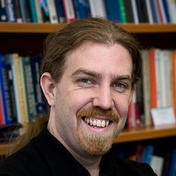Communications and Signal Processing Seminar
DNA coded randomized algorithms for cellular inference
Add to Google Calendar

No prior biological knowledge will be assumed in this talk, though
you may wish to be comfortable with electrical rewiring.
The traditional understanding of cells of a given type within the
body is that they all have near-equal potential when exposed to the
same signals. As experimental methodologies have become more
quantitative, this view has been challenged by data that has
established ubiquitous heterogeneity in the behavior of apparently
identical cells. The source, relevance, and ramifications of this
diversity is a topic of substantial study.
One recently developed significant biotechnology tool in this domain
is Cellular Barcoding. It enables the familial identification of
progeny of individual cells in vivo, and has been used for fundamental
breakthroughs in understanding of immunology, blood system development,
and cancer. With an aim to enhancing the remit and power of this
methodology, in this talk we will describe the design of two
randomized algorithms that we have developed to overcome the
shortcomings of Cellular Barcoding. One effectively shuffles and
picks from a deck of cards, with the deck of cards being a piece
of DNA, and the other enables estimation of the depth of a family
tree. These randomized algorithms are presently being implemented
in collaboration with colleagues at the Walter and Eliza Hall
Institute of Medical Research (WEHI) and Netherlands Cancer Institute
(NKI), respectively. We will provide a brief explanation of those
realizations.
Based on joint work with T. Weber; M. Dukes (Strathclyde); D. Miles,
S. Glaser & S. Naik (WEHI); K. Bresser & T. Schumacher (NKI); L.
Perie (Curie Institut).
Ken Duffy is a Professor at the Hamilton Institute, National
University of Ireland Maynooth. He received the B.A.(mod) and Ph.D.
degrees in mathematics from Trinity College Dublin in 1996 and 2000,
respectively. His research interests are in probability and statistics,
and their application to engineering and the life sciences. Amongst
other things, he is currently working on fundamental models of
computational security, as well as DNA coded randomized algorithms
for inference in cellular biology.
 MENU
MENU 
